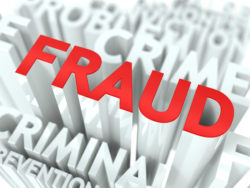 The Fair and Accurate Credit Transactions Act (FACTA) has become a vital fraud prevention tool for the United States consumer population who relies on this law for increased debit and credit card safety.
The Fair and Accurate Credit Transactions Act (FACTA) has become a vital fraud prevention tool for the United States consumer population who relies on this law for increased debit and credit card safety.
The Fair and Accurate Credit Transactions Act requires merchants to limit the amount of information visible on receipts to lower the chances of credit card fraud and identity theft.
The Fair and Accurate Transactions Act requires businesses to hide or replace all but the last five digits of the card number and completely omit the expiration date. This process is called truncation and increases the difficulty for identity theft and credit card fraud. The entire card number and the expiration date are vital pieces of personal information fraudsters target, in order to steal them and most likely sell them.
This law was originally passed by Congress in 2003, and gave businesses until 2006 to update their receipt printing software.
This essentially means that any business, regardless of size, that produces electronically printed receipts are required to perform truncation.
“No person that accepts credit cards or debit cards for the transaction of business shall print more than the last 5 digits of the card number or the expiration date upon any receipt provided to the cardholder at the point of the sale or transaction,” the Fair and Accurate Credit Transactions Act states.
Overview of FACTA Protections
It is important to note that FACTA standards do not apply to imprinted or handwritten receipts, and in those cases, consumers are advised to use cash. This is because they cannot control what happens to their debit or credit card information after the transaction is complete.
Businesses are required to follow this law to protect the privacy of consumers by safeguarding their personal information like their account numbers. Acts like identity theft and credit card can cause financial ruin to consumers, so it is important for businesses to follow the Fair and Accurate Transactions Act for the sake of their customers.
In addition to the truncation requirement, the Fair and Accurate Transactions Act allows consumers to ask for a free annual credit report from each of the three major credit reporting agencies: Equifax, Experian TransUnion. These credit reports will show consumers their financial activities and will allow them to scan the report for any suspicious transactions.
Customers are encouraged to implement additional prevention measures, including setting up a fraud alert with their bank and credit union and regularly checking their account history. Customers can also take daily precautions like safely disposing of their credit card receipts, or opting to pay cash for smaller purchases.
These preventatives measures also include checking their debit and credit card receipts to see if they are FACTA compliant. Businesses that are found to be in violation of the Fair and Accurate Credit Transactions Act could face penalties up to $1,000 per violation.
Businesses can face more severe legal penalties if they are found to be in willful violation of the Fair and Accurate Credit Transactions Act. Consumers considering filing legal action should save the faulty receipts that allegedly fail to meet FACTA compliance.
Free FACTA Class Action Lawsuit Investigation
If you made one or more purchases and the retailer provided you with a receipt that contained more than the last five digits of your credit or debit card number or the expiration date, you may be eligible for a free class action lawsuit investigation and to pursue compensation for these FACTA violations.
ATTORNEY ADVERTISING
Top Class Actions is a Proud Member of the American Bar Association
LEGAL INFORMATION IS NOT LEGAL ADVICE
Top Class Actions Legal Statement
©2008 – 2026 Top Class Actions® LLC
Various Trademarks held by their respective owners
This website is not intended for viewing or usage by European Union citizens.














